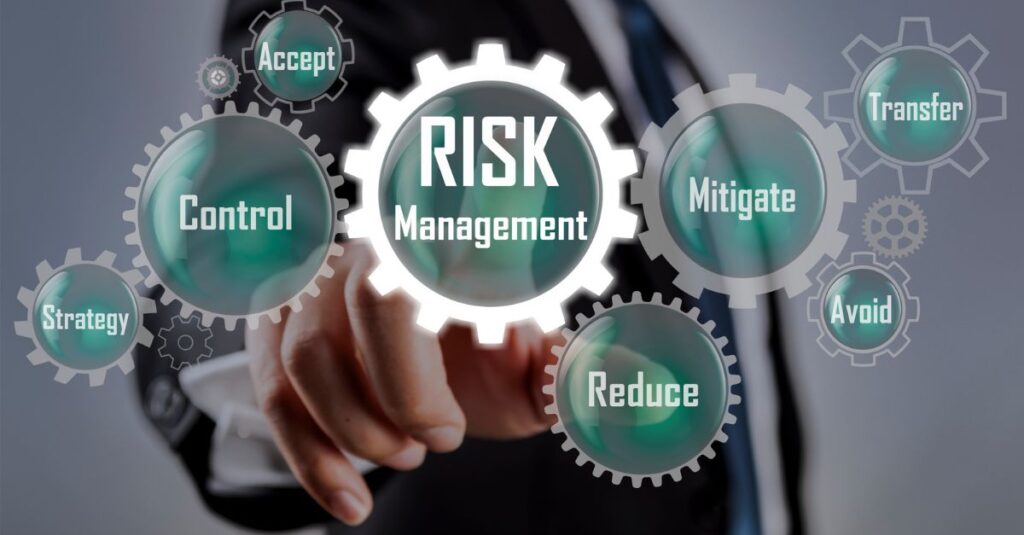In today’s rapidly changing business environment, risks are emerging from every direction, posing potential threats to organizational performance and growth. While traditional risk management models may have served a purpose in the past, the evolving nature of risks requires a more comprehensive approach to risk management.
According to the Global Risk Management Survey 2022 conducted by Aon, risks have become more complex and interconnected than ever before, making it imperative for organizations to adopt a holistic approach to managing risks. The survey also revealed that reputational risks are the top concern for businesses worldwide.
The need for a holistic approach to risk management has become increasingly critical, particularly with the adverse effect of the COVID-19 pandemic on the business landscape. The pandemic exposed the vulnerability of businesses to emerging risks impacting different areas of the organization.
In this blog, we will delve into the key components of a holistic risk management framework, discuss the benefits of this approach, and share strategies for overcoming the challenges of adopting it.
Understanding Traditional Risk Management
Risk is an inherent part of doing business. Traditional risk management, a practice that has been followed for decades, primarily concentrates on financial risks. It involves identifying, assessing, and taking economic measures to control threats to an organization’s capital and earnings. These threats could be due to several factors like fluctuations in interest rates, credit defaults, or operational losses.
However, this approach has its limitations. It often overlooks non-financial risks such as those related to reputation, technology, human resources, and natural disasters. Moreover, it tends to treat risks individually rather than interconnected events, potentially leading to a lack of comprehensive understanding and mitigation strategy.
While traditional risk management has served businesses well in the past, the rapidly changing business landscape demands a more holistic approach. An approach that not only considers financial risks but also factors in an array of diverse risks that could impact a business’s overall health and success.
The Expanding Spectrum of Risks
Businesses today face a myriad of risks that extend beyond traditional financial concerns.
- Operational Risk: These stem from potential failures in day-to-day operations, whether due to system failures, process inefficiencies, or external events.
- Environmental Risk: This involves potential losses from environmental disasters or changes, such as floods, fires, or climate change.
- Reputational Risk: This involves potential negative impacts on an organization’s reputation that may result from its activities.
- Cybersecurity Risk: In our digital age, the risk of data breaches and cyber attacks can lead to severe financial and reputational damage.
- Regulatory Risk: Changes in laws and regulations can profoundly impact a company’s operations or market presence.
These risks hold significant implications for businesses. For instance, IBM reports that the average cost of a data breach in 2022 was a staggering $4.35 million, an increase of 12.7% compared to 2020 when it was $3.86 million. Meanwhile, an industry insight by Oliver Wyman revealed that for businesses in financial services, the impact of reputation risk events was on average almost double the announced losses.
Reputational damage can erode consumer confidence, leading to a decline in sales and negatively affecting a company’s bottom line. The consequences of reputational damage can be far-reaching and long-lasting, highlighting the importance of a company’s reputation as a valuable asset.
Recognizing the Limitations of Siloed Approaches
Traditional risk management often operates in silos, with each risk category being managed independently. While this approach might have been effective in a simpler time, it poses significant challenges in today’s complex business climate.
Siloed strategies can lead to duplication of efforts, gaps in risk coverage, and failure to identify and manage interrelated risks. For instance, an operational hiccup could trigger a series of events leading to reputational damage, regulatory penalties, and financial losses. If these risks are managed in isolation, the domino effect could go unnoticed until it’s too late.
In contrast, modern risks are interconnected and can’t be effectively managed in isolation. A cybersecurity breach, for example, can have ripple effects impacting a company’s reputation, and customer trust, and potentially lead to regulatory scrutiny. Recognizing this interconnectedness is the first step towards embracing a more holistic approach to risk management
The Holistic Approach to Risk Management
Holistic risk management is an integrated, organization-wide approach to managing risks. It transcends the traditional siloed structure and instead views risk as a complex web of interconnected factors that can impact a business’s success.
The key principles of holistic risk management include comprehensive risk identification, cross-functional coordination, and proactive risk mitigation. It’s not just about managing financial risks, but also operational, environmental, cybersecurity, and social risks.
For instance, in a holistic framework, a natural disaster (an environmental risk) isn’t just a matter for the operations team. It involves finance (for insurance and recovery costs), IT (for data recovery), HR (for employee safety), and PR (for managing reputation).
By integrating these diverse risk categories, holistic risk management provides a more complete picture of the risk landscape. It enables businesses to be better prepared for uncertainties and to seize opportunities that arise from understanding the INTERPLAY of various risks.
Key Components of a Holistic Risk Management Framework
Holistic risk management is an all-encompassing approach that addresses the diverse and interconnected risks businesses face. It consists of several key components:
Risk Identification and Assessment
This involves recognizing various risks, from operational to environmental, and assessing their potential impact and likelihood. A comprehensive risk inventory helps businesses understand their exposure and prioritize mitigation efforts.
Risk Mitigation Strategies
This involves implementing measures to reduce risk exposure and developing contingency plans for different scenarios. Proactive risk management can prevent disruptions and protect the business’s reputation and bottom line.
Risk Monitoring and Reporting
This involves setting up systems to track risk indicators, regularly evaluate risk exposure, and generate accurate reports. This ongoing process helps businesses stay ahead of evolving risks and adjust their strategies as needed.
Stakeholder Engagement
Involving key stakeholders in risk management processes fosters collaborative decision-making and ensures that risk mitigation is comprehensive and aligned with business objectives.
Compliance and Legal Considerations
Businesses must navigate regulatory requirements and legal obligations, incorporating compliance measures into their risk management practices to avoid penalties and protect their reputation.
Training and Education
Building risk management capabilities within the organization is essential. Through training programs, businesses can enhance employee awareness and skills, fostering a risk-aware culture.
Benefits of Holistic Risk Management
Adopting a holistic approach to risk management provides several key benefits that can significantly enhance a business’s overall performance and sustainability:
Enhanced Resilience and Adaptability
A holistic risk management approach enhances the ability of businesses to absorb shocks and adapt to various risks. By considering all potential risks and their interconnections, businesses can build robust systems and processes that can withstand diverse challenges. This enhanced resilience ensures business continuity and stability even in volatile times.
Improved Decision-Making and Strategic Planning
A comprehensive understanding of the risk landscape feeds into better decision-making and strategic planning. By knowing what risks exist, their potential impact, and the likelihood of their occurrence, businesses can make informed decisions that balance risk and reward effectively. Additionally, strategic planning becomes more robust as it takes into account the full spectrum of risks, allowing businesses to plan for different scenarios and contingencies.
Strengthened Reputation and Stakeholder Trust
Proactive and comprehensive risk management can significantly strengthen a company’s reputation. When stakeholders see that a business is diligent about identifying, assessing, and managing risks, it fosters trust and confidence. Businesses seen as trustworthy and reliable enjoy stronger relationships with customers, employees, investors, and other stakeholders, which can translate into various benefits like customer loyalty, employee engagement, and investor confidence.
Overcoming Challenges in Adopting a Holistic Approach
Transitioning to holistic risk management is not without its challenges. Often, businesses face common obstacles such as resistance to change, lack of understanding about the benefits of a holistic approach, and entrenched siloed practices that hinder the integration of risk management efforts across different functions.
However, you can overcome these challenges with strategic interventions:
- Addressing Resistance: Change can be daunting, and resistance is a natural response. To address this, it’s essential to communicate the benefits of the holistic approach clearly and consistently. Sharing examples of successful transitions and showing how they can lead to better business outcomes can help alleviate fears and build buy-in.
- Fostering Collaboration: Breaking down silos and fostering collaboration across different functions is crucial. This can be achieved by creating cross-functional teams responsible for risk management and promoting a culture of open communication and cooperation.
- Securing Leadership Commitment: The support and commitment of top leadership are critical for driving organizational change. Leaders need to champion the transition, demonstrating its importance through their actions and decisions.
- Building Capabilities: Training and education programs can help build the necessary skills and knowledge within the organization. By enhancing employees’ understanding of holistic risk management, businesses can ensure that the approach is effectively implemented.
A successful risk management strategy is not just about minimizing threats; it’s about fostering resilience, enhancing decision-making, and building stakeholder trust. It’s about transforming your business into a robust entity capable of thriving in today’s uncertain environment.
Building a holistic risk management strategy requires a CAREFUL combination of strategies as well as having the right individuals to implement these strategies.
Feeling a bit overwhelmed? We’re here to support you. Risk Talent Associates can provide you with risk management experts that have a broad understanding of various risk management practices and are ready to guide your business toward resilience and growth.
Contact us today to start fortifying your business against risks and uncertainties.


